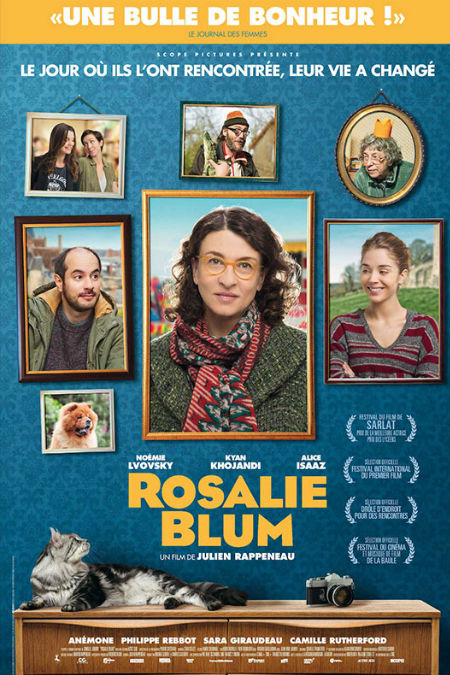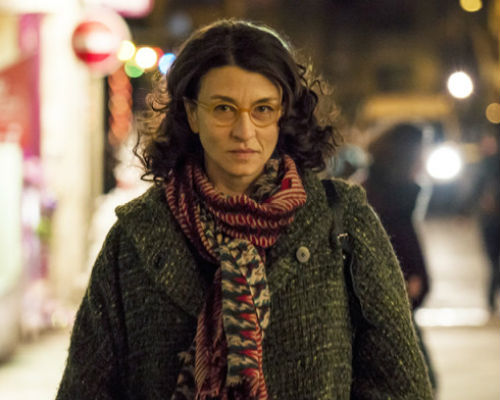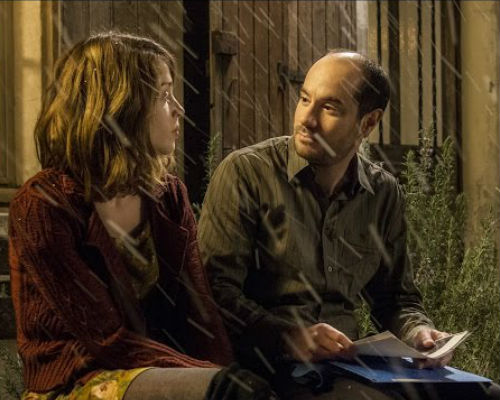
One of the great joys and strengths of French cinema is its ability, gifted from a thoroughly unique cultural perspective, to look at the great issues of life in a way that differs markedly from that of Hollywood’s.
Films like Rosalie Blum, written and directed by Julien Rappeneau and based on the series of popular graphic novels by Camille Jourdy, defy the idea that life can be neatly packaged and hermetically sealed in perfectly arrived-at happy ever-afters without humanity, real, aching, disillusioned lost humanity making its presence felt.
Granted the film, which tells the story of three people adrift in life, all marred by the twists and turns of family and fate to some degree or another, does neatly tie things up in a heartwarming bow; but it’s the getting there, delivered with the sort of quirky appreciation for life’s more unexpected moments that has long given French cinema a mischievous joie de vivre, that marks Rosalie Blum out as something special.
For a start, the character we meet first, hairdresser Vincent Mallot (Kyan Khojandi) is a stalker; not intentionally of course, and not with any malice or intent for grievous bodily harm.
No, his stalking of the titular character, small convenience store owner Rosalie (Noémie Lvovsky), is one driven by a sense of deja vu, a feeling that she has a connection to his life that he can’t quite place.
In an American romantic comedy his following after her to low-lit music club, arthouse cinemas and even to a prison – obviously here he can go no further, her mission there unknown – would be marked by growing romantic entanglement, hilarious complications and pratfalls and perhaps a sense that it’s all just a little creepy.
But Vincent is not that kind of guy and Rosalie Blum is not that kind of movie, and so instead we are gifted with one lonely man following a lonely, melancholic woman who appears to live a full life but is clearly marked by grief for events past, someone who nonetheless Vincent is desperate to connect with, even if it is from afar.

The other characters in the film might doubt Vincent’s intent – contrary to appearances, Rosalie does twig to the fact that Vincent is following her and co-opts her niece Aude (Alice Isaaz), with whom she is newly reconnecting, to in turn follow her stalker around – but the audience, safe in the knowledge that Vincent is a sweet if ineffectual guy, does not.
Like Rosalie and Aude, who is unemployed and directionless, uncertain if anything in life interests her anymore, Vincent has lost faith in his personal relationships, his job or his social outings, which are few, to provide him with any real pleasure.
And it’s not surprising, He works in the hairdressing salon he inherited from his deceased father, listening to the same tired conversations day after after day, he lives downstairs from his self-involved bullying mother who loves him but is manifestly unable to show it, and he has no girlfriend and a womanising cousin, Laurent (Nicolas Bridet) as his only real friend.
His horizons aren’t so much small, as next-to-near diminished and so when Rosalie offers him the opportunity to expand his horizons, in ways he can only guess at, he leaps at the chance, his face lighting up as he encounters avant garde Japanese cinema, beautiful indie music in a trendy club and realises that maybe life isn’t done with him yet.
None of this is overplayed of course and there is no road to Damascus moment when epiphany pile up upon epiphany and his life is forever altered for the better.
In fact, thanks to Rosalie and Aude’s counter-stalking, which comes a-cropper when it’s obvious they have unintentionally hurt Vincent – they work out pretty quickly that he’s harmless – things actually get more complicated and difficult for Vincent, at least in the short term.

But this is a romantic comedy, even a French one, and so the road to true love does go forth unimpeded and everyone ends up happily ever after.
The real joy, as noted, is how they get there.
Rosalie Blum doesn’t pretend for a moment that life can be fixed with a golden bullet of any kind; it acknowledges in ways big and small that we’re all weighed down with baggage of many different shapes and sizes.
Vincent is forever marked by his mother’s bullying, Rosalie by significant past bad choices and Aude by an overbearing family, and the film doesn’t try to pretend otherwise, mixing some very sobering moments in with the goofiness and quirkiness that many French films have in spades (Aude’s performance artist housemate Kolocataire played by Philippe Rebbot is the source of much goofy silliness as is Cécile (Sara Giraudeau) who is clearly a frustrated spy).
It doesn’t even begin to suggest that life is magically, perfectly transformed by love and connection; what it does do, in a most uplifting yet grounded way, is demonstrate how much difference being connected to people that matter to you and that to whom you matter can make to your life.
Everything isn’t turned around but it is changed in ways sublime and wonderful and as Rosalie Blum ends, you are gently but powerfully reminded that life is never a known, fixed beast and that, just like that, it can change markedly and delightfully, and take you along with it.
- Viewed Wednesday 11 January 2017.